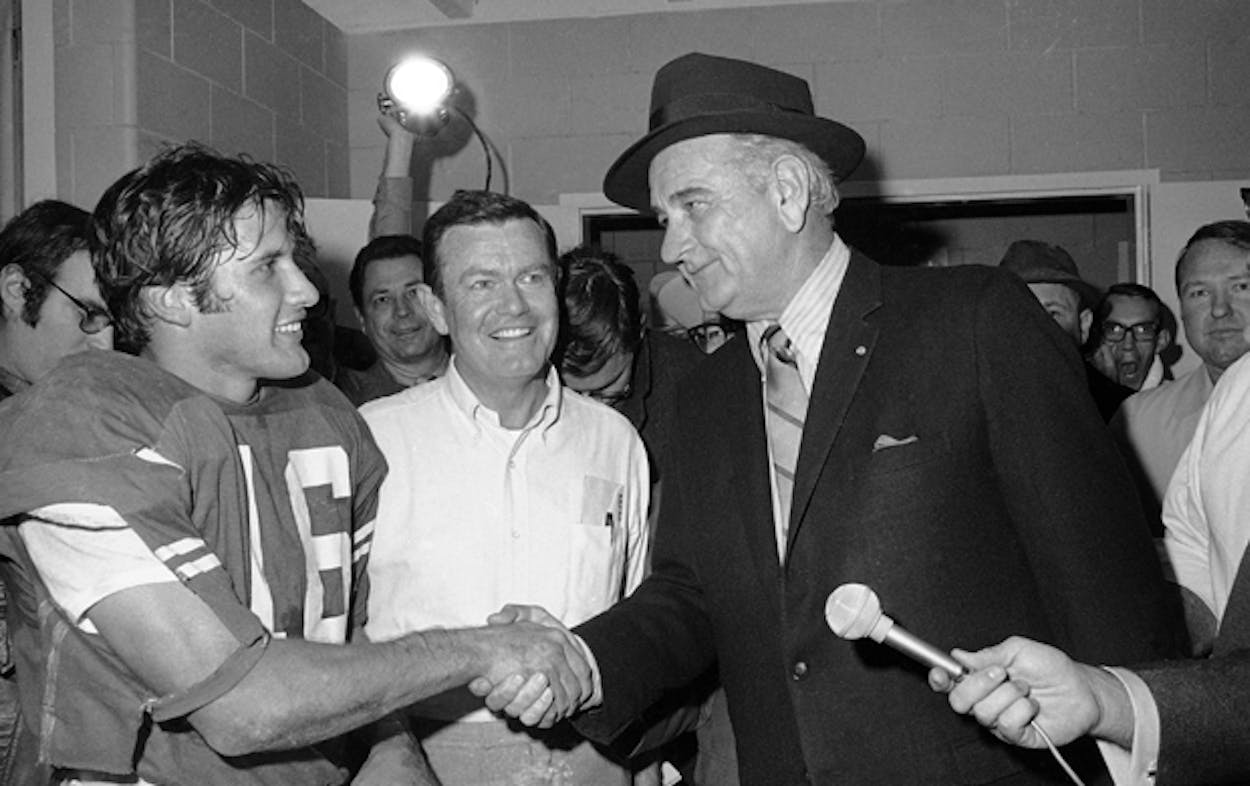On National Signing Day, ESPN.com’s Ivan Maisel sidesteps the question of who the University of Texas did get to look back on somebody the Longhorns didn’t get: Port Arthur native and Oklahoma great Joe Washington.
According to files at the LBJ Library and Museum, Washington resisted the overtures of LBJ himself, who had been asked by UT coach Darrell Royal to help him with recruiting (NCAA rules about contact with “boosters” were different in 1972, Maisel reminds us).
LBJ did not care about football (or any sport), but he loved UT as a state insitution, was friends with Royal, and, of course, was a great advocate for racial equality. Writes Maisel:
In the winter of 1972, Royal discussed with Johnson the problems that Texas had recruiting African-American players. Royal had been slow to integrate — the 1969 team is known as being the last all-white national champion — and other schools had taken advantage of the opening that lapse created. Houston and Oklahoma, the other schools in which Washington showed interest, had been integrated for some time.
The “racist image,” Royal said in an oral history he gave to the LBJ Library in 1987, “carried on down through the years and still exists in some blacks’ minds today, and I was having a hard time convincing black student-athletes that we wanted them on campus. And he [Johnson] said, ‘Well, let me call Mack Hannah [Editor’s Note: a prominent African-American businessman in Port Arthur], and let’s just meet out here at the Ranch.'”
But Washington and his family turned the offer down, as he had already made up his mind to play for Oklahoma, where a friend of Washington’s father, Joe Sr., who was the coach at Port Arthur High School, had joined the coaching staff.
Washington, who is now the executive director of the O Association (for former Sooners letter-winners), tells Maisel that he wishes he’d at least taken the opportunity to meet a former President.
“It’s one thing I regret, that I didn’t go anyway,” he said. “I think I probably made the right decision. I do regret not going.”
Maisel also discovered it was not the only time that Royal turned to LBJ, again without success:
“Actually, one weekend we made a big push and had as many of the top black prospects as we could get at one time,” Royal told the Library, “and President Johnson took a helicopter from the ranch and landed on top of the library here, and we had a little party, a little cookies and tea and milk and a little set-to in the suite here. He had a little nice, buffet-catered-type deal for those kids, and he talked to them about coming to the University of Texas. The little meeting took place, of course, right here on the campus, and I thought, ‘Well, gosh, having an ex-president of the United States show this kind of interest, this will make a heck of an impression!’
“You know,” Royal said, “we didn’t get a one of those prospects.”
Clearly Johnson’s persuasive power wasn’t quite as strong in the early ’70s as it was in the ’50s and ’60s (you might say there was damage to his brand).
- More About:
- Texas History
- Sports
- College Football
- LBJ
- Darrell Royal







